What to Eat with Braces the First Week: Soft Foods for Your New Smile
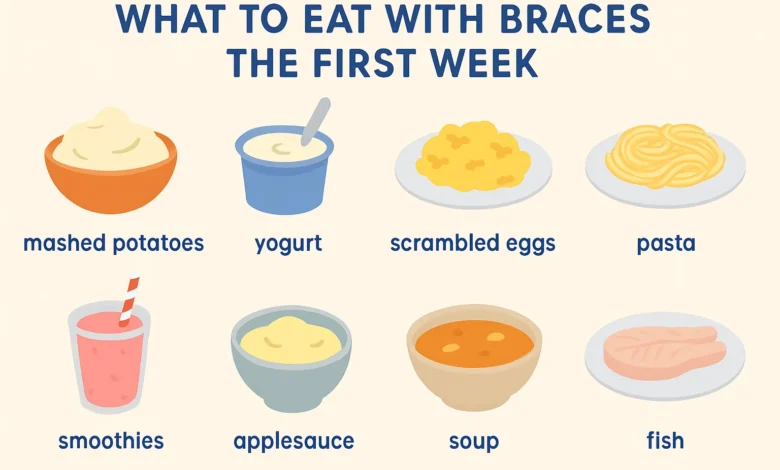
What to Eat with Braces the First Week: A Complete Guide to Your Orthodontic Diet
Introduction
Starting orthodontic treatment with braces is the initial stage towards a straighter smile, but the first week adjustment period can be quite difficult, especially in terms of diet with braces the first week. Perhaps you are newly brace-bound, or you’re about to be, and are wondering what diet alternatives are available during the adaptation phase involving the gums and teeth with braces.
A diet with braces the first week must be well considered and address the specific challenges of this period. You are likely to notice discomfort and sensitivity as the teeth start to move, while the wires and brackets inflict gum and cheeks irritation. Mitigating those symptoms requires particular attention to foods and nutrients you consume during recovery.
This guide serves to address a diet with braces the first week, managing discomfort , and outlines a range of soft food options brace-bound individuals can consume to ensure the transition is as seamless as possible.
1. Why is the First Week of Braces Important?
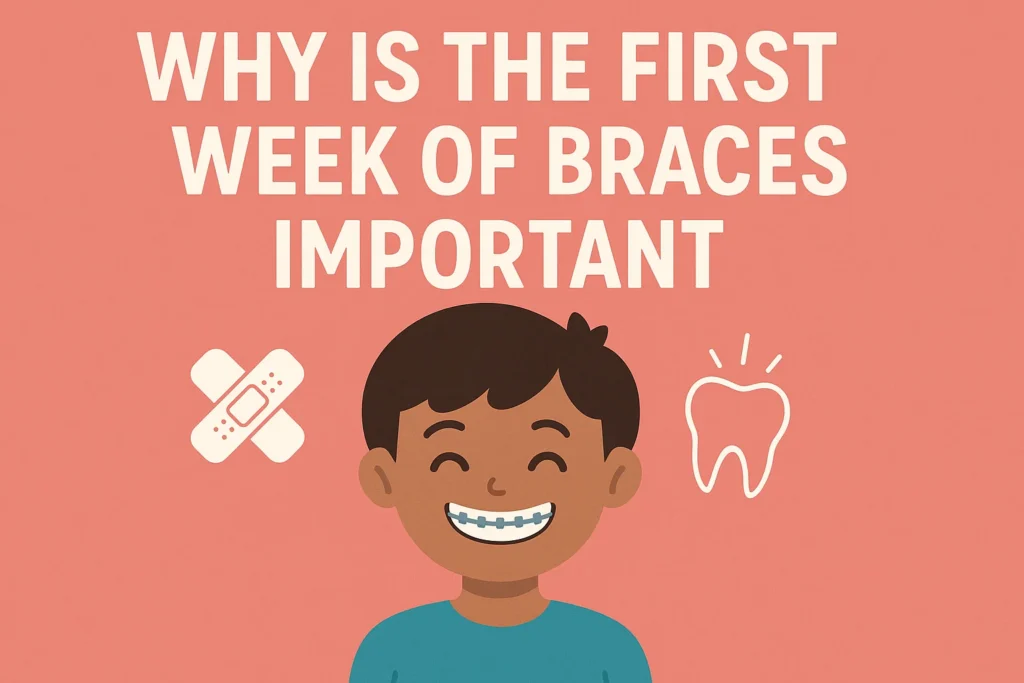
The first week of wearing braces is often the hardest period in terms of comfort and eating. It is customary to experience some level of discomfort in the teeth and gums. The soreness incurred from the braces and the friction between the braces and the metal brackets and wires makes chewing difficult.
Fortunately the first week will be easier with effective management strategies. Avoidance of troublesome foods and selecting soft foods will mitigate the damage caused to braces while smoothing the transition during the adjustment period.
2. General Guidelines for Eating with Braces
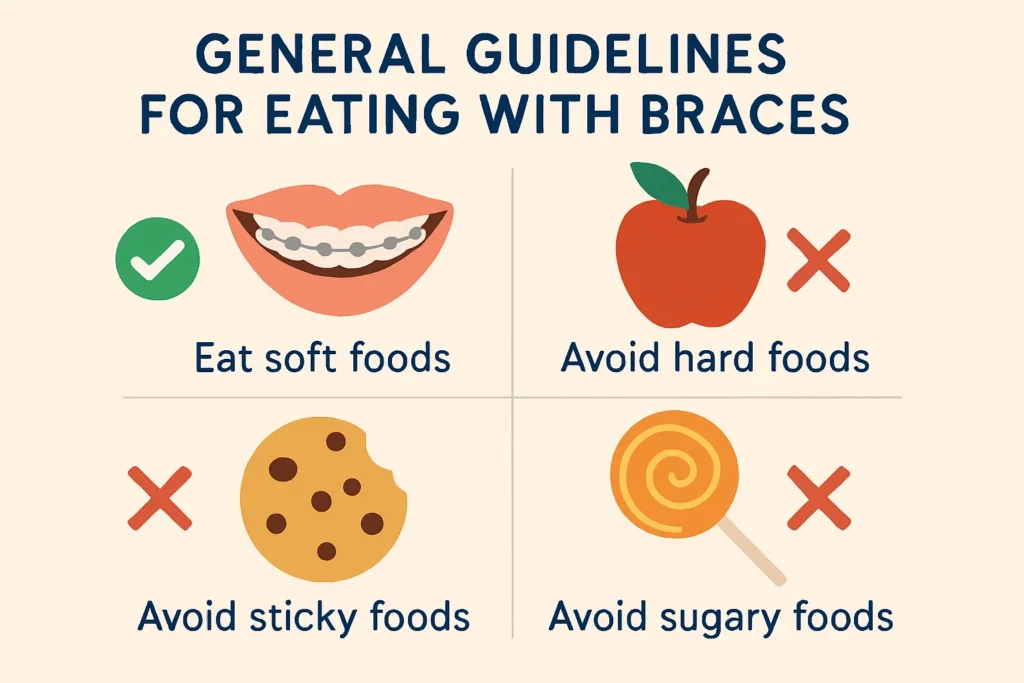
Being mindful of nutrition is critical after getting braces for the first time, especially during the initial period of adjustment. Here are some helpful tips for the first week:
1. Stick to Soft Foods.
With braces, pressure will be applied to your teeth for the first week, which will cause some discomfort. Consider gradual warming for soft foods. This includes pancakes, oatmeal, applesauce, smoothies, yogurt, and weights. These options are balanced and can be lessened during the week.
2. Cut Foods into Smaller Pieces.
Try to bite from larger portions of food. This is especially important for softer foods, such as apples or larger sandwiches, as it reduces the strain on braces and makes it softer to bite on and chew.
3. Avoid Sticky, Hard, or Crunchy Foods
These foods are hurtful for your braces. Foods such as popcorn, chewing gum, and hard candy will not only hurt your braces, but will also wreak havoc on your teeth and will hurt your braces.
4. Stay Hydrated.
Proper hydration during the first day helps ease discomfort and maintain the braces. Having your mouth hydrated helps distress and promotes adequate hydration mechanics.
5. Eat Slowly
Given your sore teeth, it is best that you eat slowly to avoid aggravating any soreness. , focus on chewing your food carefully.
3. What to Eat with Braces the First Week: Soft Foods to Enjoy
While wearing braces, it is very important to avoid tough or crunchy foods. For the first week, spongy or soft foods that can be chewed easily are the best. Below is a list of Braces friendly foods that would be ideal during this timeframe.
Soups and Broths
Soups and Broths can be a real lifesaver as they provide warmth as well as comfort. Creamy soups and blended soups are fantastic choices for this week.
Chicken noodle soup
Tomato soup
Vegetable or lentil soup (pureed)
Miso soup
If you’re craving something heartier, you can add soft ingredients like cooked vegetables or soft noodles to the soup for added nutrition.
Soft Fruits
Fruits are packed with vitamins and minerals, but some fruits can be too tough or hard to eat with braces. Focus on soft, easy-to-chew fruits during the first week, such as:
Bananas: Naturally soft and easy to mash if needed.
Avocados: Soft and packed with healthy fats.
Canned fruits: Opt for fruits like peaches or pineapple that have been canned in water or juice for a softer texture.
Applesauce: A great alternative to whole apples.
Berries: Blueberries, raspberries, and strawberries are soft and easy to eat.
Dairy Products
Dairy foods provide a significant amount of calcium and protein which is important for teeth during orthodontic treatment. During this process, soft, dairy-based dishes are simple to consume and assist in relieving inflammation in the oral cavity.
Yogurt: Opt for plain or flavored yogurt without added chunks of fruit.
Cottage cheese: A soft, protein-rich option that is easy to chew.
Milk or smoothies: These are great ways to hydrate and get nutrients without needing to chew.
Mashed Potatoes and Soft Grains
Mashed potatoes certainly tops the list of ultimate comfort foods. They aid significantly with coping with sore teeth as their texture is exceptionally soft. Furthermore, you can explore other soft grains that provide essential nutrients:
Mashed sweet potatoes: A tasty and nutritious alternative to regular mashed potatoes.
Oatmeal: Soft and soothing, perfect for breakfast.
Creamed corn: A soft, tasty option that can add variety to your meals.
4. Foods to Avoid the First Week of Braces
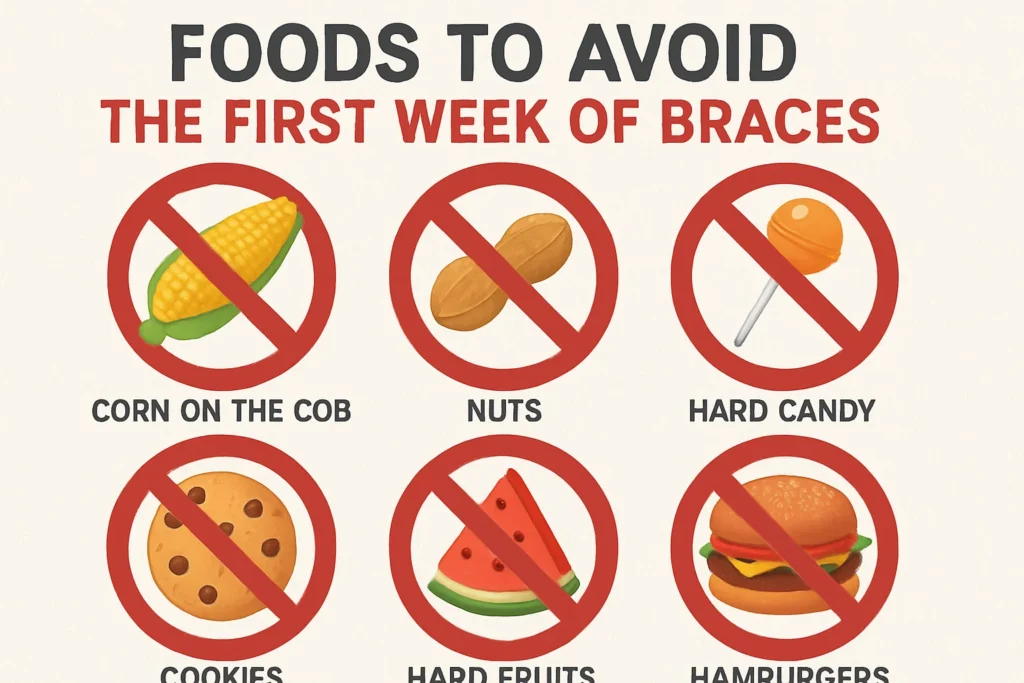
While it’s important to eat soft foods, there are some foods you should avoid in the first week to prevent damaging your braces or causing discomfort:
Hard, Crunchy Foods
Popcorn
Caramel
Hard candy
Ice
These foods can damage the brackets or bend the wires, causing delays in your treatment.
Sticky Foods
Chewing gum
Taffy
Caramel and toffees
Sticky foods can get stuck in the brackets and be difficult to clean, leading to plaque buildup, cavities, or gum issues.
Acidic Foods and Drinks
Acidic foods such as citrus fruits and tomato-based products can be quite irritating to the mouth, especially in conjunction with sore gums stemming from braces. These foods should be avoided in the first week until there is some adjustment in the mouth.
5. Dealing with Soreness: How to Eat Comfortably in the First Week
The placement of braces and adjustments to them will cause mouth soreness. The following tips will help you eat comfortably:
Use Orthodontic Wax
Orthodontic wax should be used to protect the sharp areas of your brackets and wires when they touch the inside of your lips or cheeks. The wax will help to reduce the discomfort and prevent irritation when you eat.
Eat Soft Foods Slowly
The first week after getting braces your teeth and gums need time to get used to the pressure of the braces. Eating slowly will help to reduce the pressure on your teeth and help you to manage the discomfort.
Avoid Eating Foods That Are Too Hot or Too Cold
Since your teeth may be sensitive, avoid foods or drinks that are too hot or too cold, as they can cause discomfort. Stick to foods that are at a comfortable temperature.
6. Hydration Tips: Drinking with Braces
Drinking plenty of water is crucial when you have braces, especially in the first week. It helps to rinse away food particles and bacteria, and keeps your mouth hydrated. Here are some tips for drinking with braces:
Drink water after meals to flush out food debris.
Avoid sugary drinks like soda, which can lead to plaque buildup.
If you drink anything acidic, such as juice, rinse your mouth with water afterward to protect your enamel.
7. Nutritional Tips During the First Week of Braces
It’s important to focus on maintaining a balanced diet during the first week to support your health. Here are some tips:
Include soft vegetables like cooked carrots or steamed spinach to provide essential vitamins.
Consume protein-rich foods like soft tofu, eggs, and chicken to help with tissue repair.
Incorporate whole grains like oatmeal and soft rice for energy and digestion.
8. How to Make Your Braces Diet Enjoyable and Varied
Eating with braces doesn’t have to be boring! You can experiment with a variety of soft foods to make your meals exciting and nutritious. Here are a few ideas:
Smoothies: Combine fruits, yogurt, and protein powder for a refreshing, easy-to-consume meal.
Mashed potatoes: Get creative with toppings like cheese, gravy, or butter.
Homemade soups: Add your favorite soft vegetables and lean meats for a nutritious and easy-to-eat meal.
9. What to Expect in the First Week of Braces
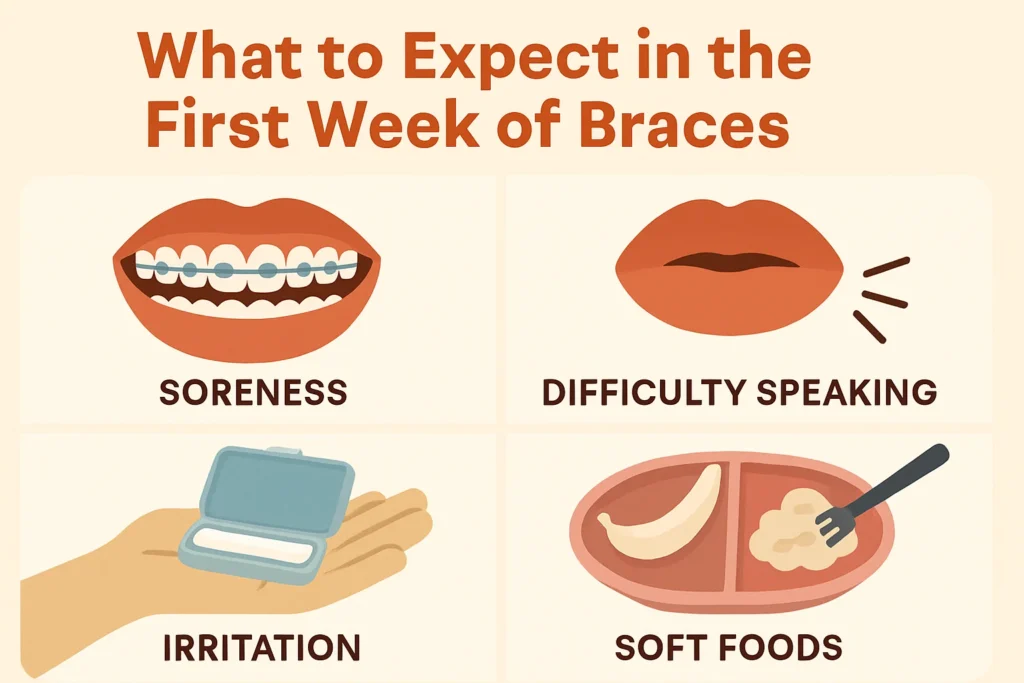
The first week of wearing braces can be a bit uncomfortable as your teeth begin to shift. Here’s what to expect:
Soreness: Your teeth may feel sore as the braces apply pressure to move them into position.
Irritation: The brackets and wires may rub against your cheeks and gums, causing irritation or sores.
Adjustment Period: Your mouth may feel swollen or sensitive, but this should subside within a few days.
By sticking to soft foods and following a good oral hygiene routine, you can manage the discomfort effectively.
10. Braces and Your Oral Hygiene: Eating and Cleaning After Meals
Maintaining good oral hygiene during your first week of braces is crucial to avoid plaque buildup and other dental problems. Here’s how to clean your teeth properly after eating:
Brush your teeth after every meal to remove food particles and plaque from around your braces.
Floss daily using orthodontic flossers or a water flosser to clean between your teeth and braces.
Use mouthwash with fluoride to protect your teeth and gums.
11. Final Thoughts: The First Week of Braces and What to Eat
The first week of wearing braces requires adjustment but it leads to a crucial point for developing both oral health and straight teeth alignment. The initial phase will become smoother when you practice good oral hygiene and eat foods suitable for braces. The relief of oral discomfort can be achieved through protective diets which also provide essential nutrition.
The most crucial aspect involves staying hydrated while practicing good oral hygiene and steering clear of hard and sticky foods. The path to obtain a beautiful and healthier smile should be embraced.
Alternative to Braces: Which Treatment is Right for You?



